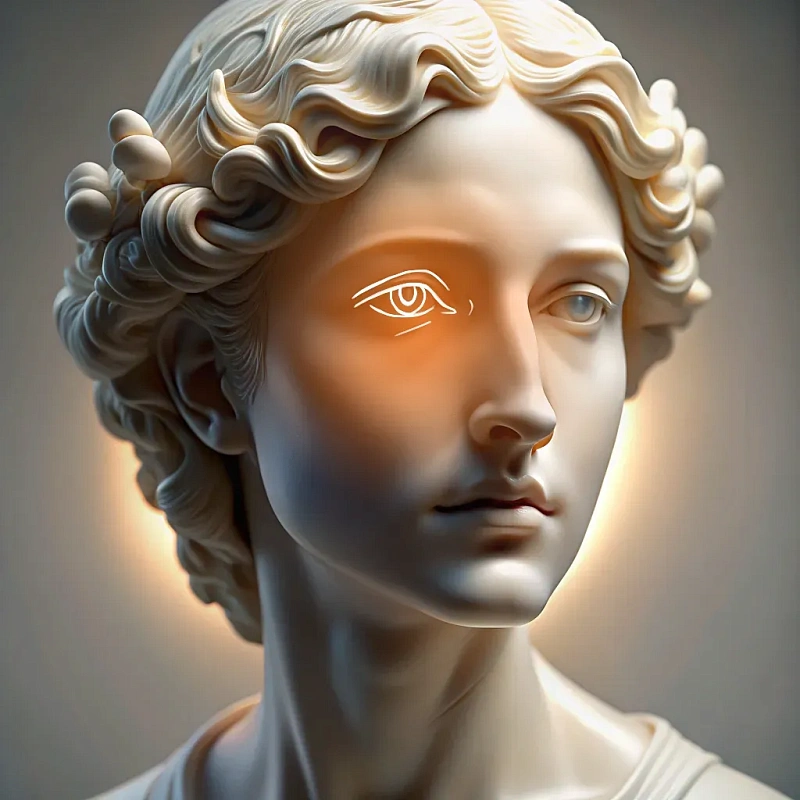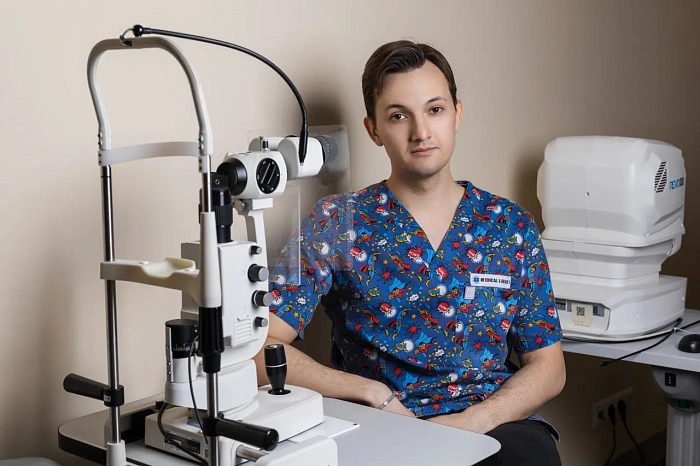Consultation with an ophthalmologist
A complete examination of vision and eye condition to identify problems such as myopia, hyperopia, astigmatism, cataracts, glaucoma and other eye diseases.

It is important to check your eyesight regularly, because many eye diseases develop unnoticed and without pain, and early detection helps prevent serious complications, including vision loss.
Benefits
Diagnostic accuracy
High-precision equipment makes it possible to accurately diagnose diseases in the early stages.
Individual approach
Taking into account the characteristics of each patient to optimize the results of treatment.
Modern methods of treatment
Access to the latest treatment methods, including laser correction.
Professionalism and experience
Deep knowledge and long-term experience of specialists in the field of ophthalmology.
Preparation
Before visiting an ophthalmologist, it is recommended to make a list of current medical problems, medications taken, as well as previous eye diseases. If you wear glasses or contact lenses, bring them with you to the consultation.

Consultation
During the consultation, an ophthalmologist will assess visual acuity and other visual functions, conduct tests on devices to detect changes in refraction (myopia, hypermetropia, astigmatism), and assess intraocular pressure. On a slit lamp, the doctor will assess the condition of the anterior segment of the eye, examine the fundus for a narrow pupil. If indicated and / or desired by the patient, drops can be instilled to dilate the pupil and then examine the fundus (a more informative examination). Based on the results of the diagnosis, the ophthalmologist will give recommendations on vision correction or the need for treatment.

Врачи
Смотреть всех врачейIndications and contraindications
Indications
Visual impairment
Blurring when looking into the distance or at close distances, difficulty focusing.
Visible physical eye changes
Redness, burning sensation, feeling of "sand" in the eyes, the presence of discharge from the eyes (mucus / pus), pain.
Frequent headaches
Especially if they are associated with visual fatigue.
Preventive examinations
In the absence of complaints and identified pathologies in the past, a visit to an ophthalmologist can be carried out once every 3 years, or with the appointment of other specialists
Expected effect
Vision correction
Selection of glasses for comfortable wearing.
Disease prevention
Identification and treatment of conditions that can lead to visual impairment.
Optimization of treatment
Regular checkups to monitor the condition of eye pathology, as well as systemic diseases
Optimization of treatment
Prescribing or correcting the current treatment.